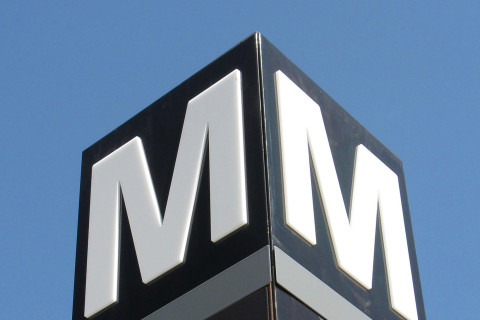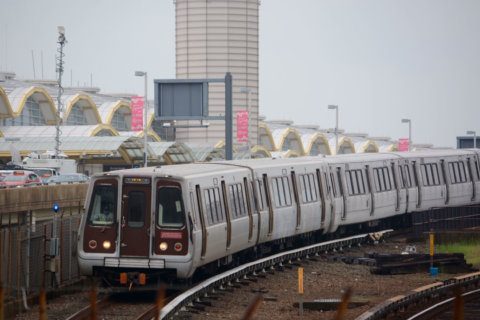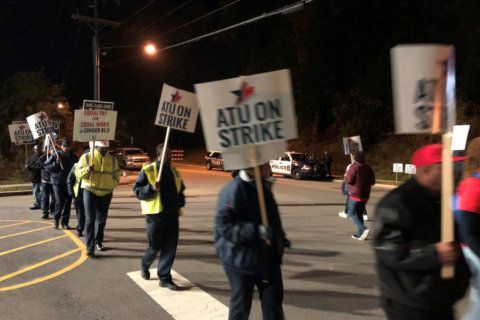The commission responsible for safety oversight of Metro is telling Metro that it will not do the transit agency’s own safety work and contract negotiations on Silver Line construction problems.
A letter from the Washington Metrorail Safety Commission, or WMSC, obtained by WTOP, essentially says that Metro was out of line for asking last month that the commission expand its reviews of the Silver Line extension to Dulles International Airport and Ashburn, Virginia, which is being built by contractors for the Metropolitan Washington Airports Authority.
The letter, signed by commission CEO David Mayer, points to Metro’s own responsibilities to ensure that the Silver Line meets contractual standards agreed upon by the Airports Authority and Metro in 2013 and Metro’s obligations to follow safety certification plans.
Instead, Metro has not even raised some of the most significant issues — concrete panels at stations, the rock ballast supporting tracks in the new rail yard, and issues getting the tracks properly level at some switches — to the project’s Safety Certification Working Group.
The commission has been overseeing Metro’s work on the project and it is ultimately responsible for signing off on the work of that group and a final safety and security certification report that Metro is supposed to complete.
Mayer appeared to take offense to Metro General Manager Paul Wiedefeld’s request in a December letter telling the commission do a more extensive review before trains start rolling.
“This request seems to presume that the WMSC’s review is inadequate in some fashion or has already concluded. Both presumptions are incorrect,” Mayer’s letter said.
The commission is providing ongoing feedback to Metro and the Airports Authority.
In a bolded line in the letter, Mayer tells Wiedefeld that Metro must do more on its own.
“In addition to the WMSC’s work, there are significant actions WMATA must take to ensure Phase 2 is safe and ready for service,” the letter said.
It is up to Metro to determine when construction is far enough along for simulated rail service, and whether it is ready to accept ownership of the line before it sends a final report to the commission for review.
The commission only reviews safety requirements before the line opens to riders, not when Metro decides to accept ownership of the line, the letter said.
“The WMSC’s role is deciding whether WMATA’s decision to open the line for passenger service is sound,” Mayer wrote.
Wiedefeld also asked the commission to provide specific direction to the Airports Authority about the construction problems, which Mayer writes is another Metro responsibility.
The commission does want those issues resolved, but wants them resolved through processes already in place between Metro, the Airports Authority and construction contractors.
Metro’s Office of Inspector General is also finalizing its own report on some of the issues with construction, which could help with Metro’s determination.
The Metro Board is getting an update on construction Thursday that outlines progress on eight of 12 significant issues with construction.
Metro is planning for a potential opening of the line this fall, while the Airports Authority remains hopeful the line could open this summer.
But delays have continued, including a delay due to train control software changes. Those changes have delayed a series of a dozen weekend shutdowns of Wiehle-Reston East for tie in work.
Those shutdowns are now expected to start around March, which could overlap with Cherry Blossom ridership and further delay the opening of the line.







